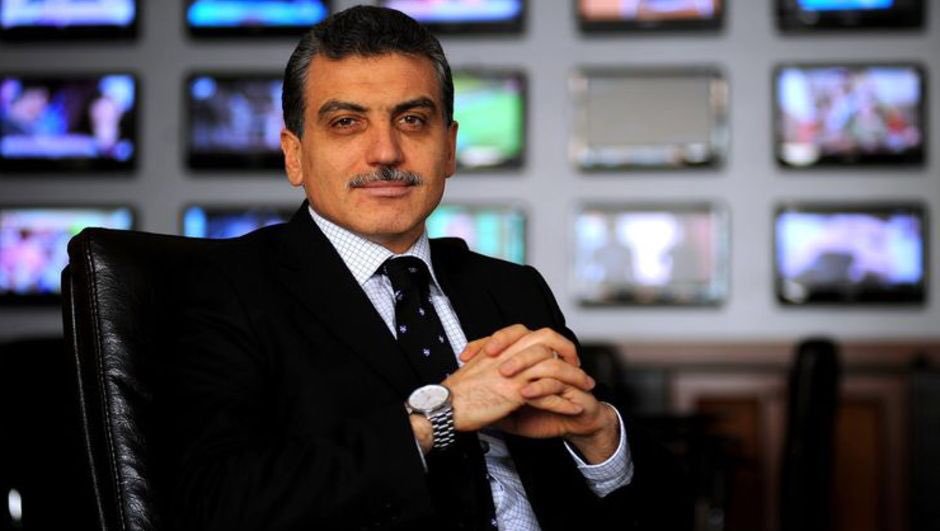Turkish prosecutors are seeking a prison sentence of up to 2,445 years for Hidayet Karaca, former chief executive of the Samanyolu Media Group, on various and consecutive charges in a trial concerning allegations that there was a conspiracy in a match-fixing scandal that surfaced in 2011, according to Jailed Journos, an online platform raising awareness about jailed journalists in Turkey.
Karaca, who has been behind bars since December 2014, is among the 108 defendants in the trial. In the last hearing at the İstanbul 23rd High Criminal on Thursday, the prosecutor submitted his 142-page opinion to the court in which he sought the lengthy jail sentence for Karaca.
The match-fixing scandal became news in the summer of 2011 when Turkish police began an investigation into 19 football matches suspected of being fixed, and by July 10, 61 people had been arrested, including then-Fenerbahçe Chairman Aziz Yıldırım and Turkish national players.
On July 2, 2012 a specially authorized court convicted and sentenced Fenerbahçe President Yıldırım to six years, three months in prison on match-fixing charges. Fenerbahçe Vice President Şekip Mosturoğlu was sentenced to one year, 10 months and 10 days in prison, and the other vice president of Fenerbahçe was sentenced to one year, two months.
The case was retried in 2015, and the court acquitted all the people who were charged at the beginning of the investigation pending the Supreme Court of Appeals’ approval.
Since the Justice and Development Party (AKP) launched a war against the Gülen movement following a corruption scandal in late 2013 in which senior government members were implicated, it has been accusing the movement of involvement in dozens of conspiracies despite the lack of any credible evidence. The match-fixing scandal is one of them.
The AKP government also holds the movement responsible for a failed military coup on July 15, 2016, a claim that is strongly denied by the movement.
Karaca faces a prison sentence ranging from 893 years to 2,445 years on 76 consecutive charges of instigating breaches of the confidentiality of communications, 76 consecutive charges of instigating wiretapping and the recording of phone conversations, 166 consecutive charges of instigating forgery of official documents and 91 consecutive charges of instigating slander.
Karaca has been held in the notorious Silivri Prison in İstanbul since December 2014 and was sentenced by an İstanbul court to 31 years, six months’ imprisonment over the scenario of a TV series that was broadcast by Samanyolu TV. Karaca was sentenced on charges of membership in a terrorist organization for his alleged ties to the Gülen movement and for allegedly slandering the al-Qaeda-affiliated radical Islamist group Tahşiyeciler.
In June 2018 the Ankara 4th High Criminal Court handed down an aggravated life sentence to Karaca on charges of attempting to overturn the constitutional order. His sentence was later upheld by the 20th Criminal Chamber of the Ankara Regional Court of Justice in November 2020 as part of a case that was launched against 75 people accused of links to the faith-based movement inspired by Muslim cleric Fethullah Gülen.
Turkish President Recep Tayyip Erdoğan has been targeting followers of the Gülen movement, a faith-based group inspired by the Turkish cleric, since the corruption investigations of December 17-25, 2013, which implicated then-Prime Minister Erdoğan, his family members and his inner circle.
Dismissing the investigations as a Gülenist coup and conspiracy against his government, Erdoğan designated the movement as a terrorist organization and began to target its members. He locked up thousands including many prosecutors, judges and police officers involved in the investigation as well as journalists who reported on them.
Erdoğan intensified the crackdown on the movement following a coup attempt on July 15, 2016 that he accused Gülen of masterminding. The crackdown also targeted political opponents of the government, Kurdish activists and human rights defenders, among others. Gülen and the movement strongly deny involvement in the abortive putsch or any terrorist activity.
The Samanyolu Media Group is among the dozens of media organizations that were closed down by the Turkish government in the aftermath of the failed coup due to their links to the Gülen movement.

